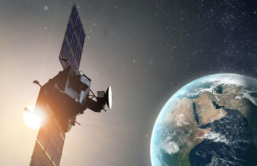If you are a gymnast, you know that your sense of movement and balance is strong. You probably have a strong, special "sixth sense", which makes you aware of that indescribable feeling of lightness - that can be described now as pure science!
There is a special gene, the PIEZO2, which influences proprioception. This gene is responsible for the brain's understanding of the position of a physical body in space, say researchers from the US National Institutes of Health (NIH). The findings were published in the New England Journal of Medicine.
There are a number of patients who do show these mutations, and lose their "sixth sense". Scientists arrived at this conclusion after they researched a nine-year-old as well as a 19-year-old. Both of them had a mutation in the gene, hence they tended to lose their sense of balance and movement, and also showed a different ability to be aware of sensation.
"Our study highlights the critical importance of PIEZO2 and the senses it controls in our daily lives," study leader Carsten Bonnemann, senior investigator at the NIH's National Institute of Neurological Disorders and Stroke said.
Two women, nine and 19, were studied and seemed to exhibit PIEZO2 mutations. It led to some variability in movement and balance, and even a few forms of touch.
Both the women seemed to undergo some problems while walking, and also displayed "hip, finger and foot deformities", "abnormally curved spines" that was identified to be progressive scoliosis.
Even when they got blindfolded, both women found it tough to walk, and had to be held by a couple of assistants so that they would not "stagger and stumble. Moreover, they were also not able to feel vibrations from a buzzing tuning fork, or manage to differentiate between one or two small ends of a caliper when it got pressed against their palms.
Compared to them, two control subjects showed completely "normal" movements of balance and sensation.
"The results establish that PIEZO2 is a touch and proprioception gene in humans. Understanding its role in these senses may provide clues to a variety of neurological disorders," added Bonnemann.








